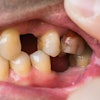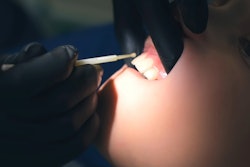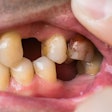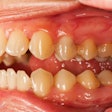
Texting targeted oral healthcare messages to caregivers may be more likely to improve their kids’ dental habits, like brushing twice daily, than sending them wellness texts, according to the International Association for Dental, Oral, and Craniofacial Research (IADR).
Although the texts were sent with the goal of improving dental care routines for children, the messages also improved the dental habits of caregivers. These communications may be effective strategies for reducing dental health disparities, according to research presented in March at the 102nd General Session of the IADR.
To explore whether different messages can lead to better oral hygiene habits, 754 pairs of parents and children were randomly selected to receive text messages. The oral health-focused messages primarily addressed child toothbrushing and arranging preventive dental visits, as well as topics like fluoride and sugar-sweetened beverage consumption. Conversely, wellness texts emphasized reading skills, child safety, and themes like child development and sleep, according to the study led by Dr. Michelle Henshaw, MPH, of the Boston University School of Dental Medicine.
For four months, participants were provided with automated, interactive, customized, and gamified text messages with an additional one-month booster at 12 months. Caries assessments were conducted at the beginning and at 12 months and 24 months.
At 24 months, participants who received parent-targeted oral health text messages were 77% more likely to meet the guidelines of brushing twice per day, 51% more likely to have a preventive dental visit, and almost 50% more likely to use fluoride toothpaste compared to those who received child-wellness text messages, according to the study.
Additionally, oral health texts had a positive effect on parents’ brushing frequency (mean difference = 0.48, 95% confidence interval = 0.03-0.92), according to the research.




















